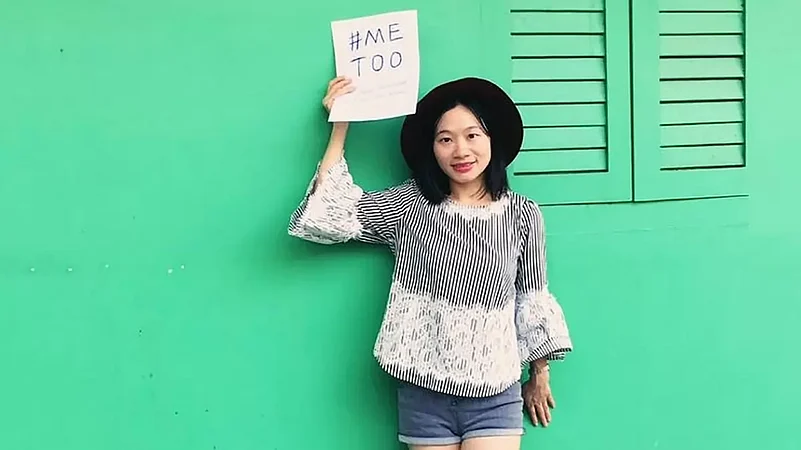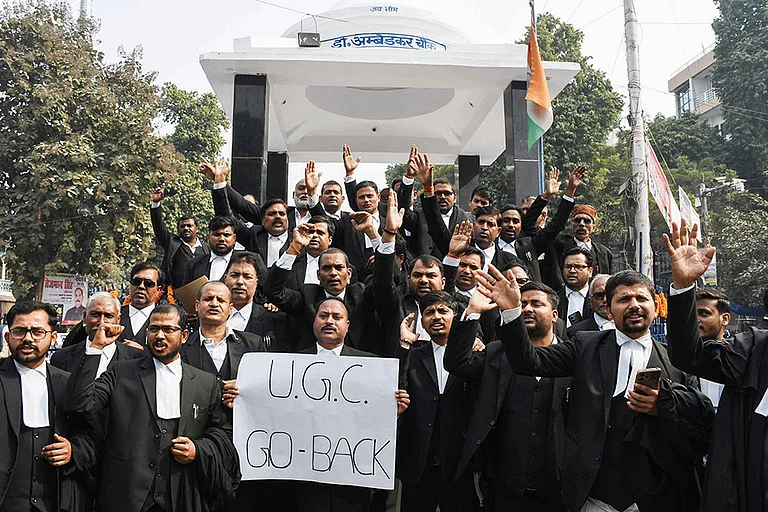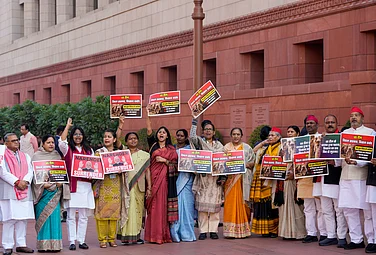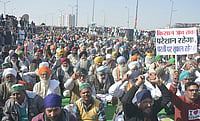The secret trial of two activists associated with the gender rights and the #MeToo movements has started in China's Guangzhou city, according to reports.
The case involves activist and journalist Huang Xueqin and fellow activist Wang Jianbing. The two of them have been detained since 2021.
Huang and Wang are charged with "inciting the subversion of state power". The documents related to the case have not been released.
Huang rose to prominence in 2018 when the #MeToo movement emerged in China. The movement refers to the online phenomena that led to a large number of women to come out with accounts and allegations of sexual abuse through social media posts on platforms like Facebook and Twitter. They used the hashtag #MeToo.
Here we explain who Huang and Wang are, what issues they raised, and what the Chinese government has charged them with.
Who are Huang Xueqin and Wang Jianbing?
Huang Xueqin and Wang Jianbing are Chinese activists associated with the gender rights movement in China.
Huang is a feminist activist associated with the gender rights movement who rose to fame in 2018 during the #MeToo movement in China. She is also a journalist known for covering the pro-democracy movement in Hong Kong.
Wang is also an activist known for being associated with the gender and labour rights movements. He and Huang held a series of events on gender and feminist themes in the run-up to their detention in September 2021.
"Ms. Huang emerged as an important activist in China’s burgeoning #MeToo movement in early 2018, when she created a social media platform for reporting sexual harassment. She organized and published surveys that found it to be rampant in universities and workplaces. A champion of women’s right to speak out about harassment, Ms. Huang also described having been subjected to it herself by a colleague at a national news organisation," reported The New York Times.
Huang and Wang were detained a day before Huang was set to leave China in a flight for the United Kingdom where she was to pursue post-graduation on a UK government scholarship.
"In the year leading up to their arrest, Huang and Wang had organised weekly meetings at Wang’s apartment in Guangzhou for like-minded progressives, to discuss issues such as feminism, LGBTQ+ rights and labour issues, but also to watch films and play board games," reported Guardian.
A friend of the two told the Guardian that they were "trying to rebuild a network to bring together every isolated individual" and those attending the events "never thought that this was dangerous, or even offensive to the government".
The NYT reported that, prior to her detention in the current case in 2021, Huang was also detained in 2019 for covering and taking part in the Hong Kong protests. A security law introduced in 2020 has stripped the city of the autonomy it enjoyed, which had made it a haven for free speech and other civic rights in a country that's otherwise run by the Communist Party of China (CPC) with an iron-fist with no scope for dissent or freedom of expression and where independent media is non-existent.
About Wang, The NYT reported, "Mr. Wang worked to promote the rights of people with disabilities as well as workers. He was also a #MeToo advocate who tried to help victims of harassment speak out."
What's China's case against the activists?
While the exact details have not been released by the Chinese authorities, the Huang and Wang have been charged with the incitement of subversion of the state power. The charge has often been used in China to crush dissent, particularly after Xi Jinping became the ruler of China in 2012.
"Little is known about the government’s case, but the vaguely worded offense with which the two were charged has long been seen as a tool for muzzling dissent. Since China’s top leader, Xi Jinping, came to power in 2012, the ruling Communist Party has sought to essentially silence people who have fought for free speech and political rights. A steady stream of activists, lawyers, tycoons and intellectuals have been put on trial and sentenced," noted NYT.
The two activists have been incommunicado in detention and formal arrest notices were published 47 days after their detention, according to reports.
The rights groups have alleged that Huang and Wang have been tortured and interrogated in secret. To build the case against them, the Chinese authorities have reportedly interrogated friends and contacts of the two activists.
The Chinese Human Rights Defenders (CHRD) has said that the Chinese police interrogated nearly 70 acquaintances of Huang and Wang in the weeks after their detention and forced them to sign testimonies against the two.
Ironically, while Huang is now being tried for subversion of state power over the feminist activism, her own allegations during the Me Too Movement had led to the conviction of one of her professors.
As Huang was to attend a UK scholarship, the UK government has also reacted to the trial. A UK Foreign Office spokesperson said: "We have directly raised our concerns on this case with the Chinese authorities on several occasions. Nobody should be arrested and put on trial for exercising their fundamental rights. British diplomats will seek to attend the trial."


























